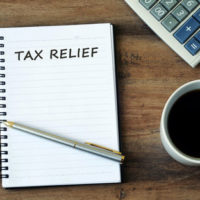Tax Relief for Victims of Hurricane Irma

On September 12th, the IRS announced that taxpayers in Florida who have been affected by Hurricane Irma will be eligible for tax relief. To find out whether this applies to you, please contact an experienced Florida tax attorney who can advise you.
Tax Relief Eligibility
According to the IRS’s declaration, certain deadlines will be postponed for those who reside or have a business in the disaster area, which includes the all FL counties:
- Alachua
- Baker
- Bay
- Bradford
- Brevard
- Broward
- Calhoun
- Charlotte
- Citrus
- Clay
- Collier
- Columbia
- DeSoto
- Dixie
- Duval
- Escambia
- Flagler
- Franklin
- Gadsden
- Gilchrist
- Glades
- Gulf
- Hamilton
- Hardee
- Hendry
- Hernando
- Highlands
- Hillsborough
- Holmes
- Indian River
- Jackson
- Jefferson
- Lafayette
- Lake
- Lee
- Leon
- Levy
- Liberty
- Madison
- Manatee
- Marion
- Martin
- Miami-Dade
- Monroe
- Nassau
- Okaloosa
- Okeechobee
- Orange
- Osceola
- Palm Beach
- Pasco
- Pinellas
- Polk
- Putnam
- Santa Rosa
- Sarasota
- Seminole
- St. Johns
- St. Lucie
- Sumter
- Suwannee
- Taylor
- Union
- Volusia
- Wakulla
- Walton
- Washington
Taxpayers who live in one of these counties may qualify for tax relief. For example, residents who are required to file a tax return on a deadline that falls on or after September 4, 2017 will have this deadline extended to January 31, 2018. This includes individual, corporate, estate, trust, income, gift, employment, excise, and partnership tax returns. The tax relief declaration also covers:
- Income tax payments that are paid quarterly and were originally due on September 15, 2017 or January 16, 2018;
- The quarterly payroll and excise tax returns that were due on October 31 2017; and
- Calendar year, tax-exempt organizations that were granted an automatic extension through November 15 2017.
Taxpayers who do not live in or own a business that is located in the covered disaster area may still qualify for an extension if:
- The records necessary to file their returns are located in the disaster area;
- They are relief workers affiliated with a recognized organization; and
- They were visiting the area at the time of the hurricane and were injured or killed as a result of the disaster.
Taxpayers who reside in a federally declared disaster area may also be able to claim a disaster-related casualty loss on their income tax return and deduct personal property losses that are not covered by insurance. Finally, penalties on excise and payroll tax deposits will be abated as long as the deposits are made by the 19th.
Notification
The IRS automatically identifies taxpayers who live in the disaster area, after which they apply filing and payment relief automatically. If, however, an affected taxpayer still receives a late filing notice or notification of a penalty from the IRS that includes the original deadline, he or she should call the IRS at the listed telephone number immediately to receive an abatement. Taxpayers may also be required to explain how the disaster impacted them before being granted an extension.
Call an Experienced and Compassionate Florida Tax Attorney Today
Natural disasters, such as the hurricane that so recently devastated parts of Florida, can leave victims feeling powerless and unsure of their next steps. Fortunately, those who live in areas affected by Hurricane Irma do not have to add filing a tax return to their list of mounting responsibilities. To learn more about whether you qualify for tax relief, please contact Ronald Cutler, P.A. at 386-490-9949 to schedule a one-on-one meeting with a dedicated attorney.
Resources:
irs.gov/newsroom/tax-relief-for-victims-of-hurricane-irma-in-florida
law.cornell.edu/uscode/text/26/7508A



